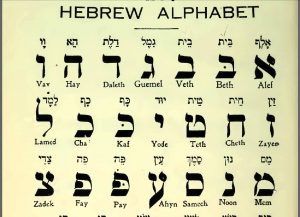Welcome to Day 1544 of our Wisdom-Trek, and thank you for joining me.
This is Guthrie Chamberlain, Your Guide to Wisdom
Bible Study – “Literal” Interpretations and “Meanings” of Original Language – Meditation Monday
Wisdom – the final frontier to true knowledge. Welcome to Wisdom-Trek! Where our mission is to create a legacy of wisdom, to seek out discernment and insights, to boldly grow where few have chosen to grow before. Hello, my friend; I am Guthrie Chamberlain, your captain on our journey to increase Wisdom and Create a Living Legacy. Thank you for joining us today as we explore wisdom on our 2nd millennium of podcasts. This is Day 1544 of our Trek, and it is time for Meditation Monday. Taking time to relax, refocus, and reprioritize our lives is crucial in order to create a living legacy. For you, it may just be time alone for quiet reflection. You may utilize structured meditation practices. In my life, Meditation includes reading and reflecting on God’s Word and in prayer. It is a time to renew my mind, refocus on what is most important, and making sure that I am nurturing my soul, mind, and body. As you come along with me on our trek each Meditation Monday, it is my hope and prayer that you, too, will experience a time for reflection and renewing of your mind.
We are continuing our series this week on Meditation Monday as we focus on Mastering Bible Study through a series of brief insights from Hebrew Scholar, Dr. Michael S. Heiser. Our current insights are focusing on accurately interpreting the Bible. Today let us meditate on:
Bible Study – “Literal” Interpretation and “Meaning” of Original Language
· Insight Forty-Seven: What is meant by “Literal” Interpretation of the Bible Needs Interpretation

Many readers have heard the old argument in defense of literal Bible interpretation: “When the plain sense makes sense, seek no other sense. It’s pithy. If you don’t overthink it, it might even sound like it makes sense. It’s not very helpful.
Consider the word “water. What does it “literally” mean? What exactly is its “plain sense”? Here are a few possibilities:
Noun:
- H20 (chemical compound)
- Body of water (“Look at all that water.”)
- Ocean
- Sea
- Lake
- Pond
- River
- Stream
- Creek
- Inlet
- Liquid drink (“I’d like some water.”)
- Hydration supply (“They turned off the water.”)
Verb:
- Irrigate (“Water the fields.”)
- Provide hydration (“He watered the cattle.”)
- Saliva (“My mouth watered.”)
- Tearing up (“His eyes watered.”)
Which one of these is the plainest of the plain? That’s the point. They’re all plain. What distinguishes them is context. Things get even more interesting when you move into metaphorical meanings for water, which can be exactly what context requires. “Water” can speak of a life source, purification, transformation, motion, or danger. The metaphors work because of the “literal’ characteristics of water.

Biblical writers used words loaded with symbolic, abstract meanings that were well known in their culture. We miss all that when we insist words must mean what pops into our heads in our time and culture. We ought to be trying to discern what the biblical writers and their original readers were thinking, not what we’re thinking. What the “plain sense” is to us may not have been at all plain to them.
· Insight Forty-Eight: The Meaning of an Original Language Word Is Not Determined by the Sound of That Word in a Different Language

I know what you’re thinking. You’re wondering how in the world anyone could believe that the title of this section could be true. I agree; the idea is genuinely bizarre. That’s why it’s so disturbing when you encounter people who think they’re “digging into the Word’’ by interpreting Scripture that way.
I’ll start with a typical example many readers will (sadly) have heard. Ezekiel 38:2-3 refer to a figure known as “Gog, chief prince of Meshech and Tubal. The Hebrew behind “chief prince” is pronounced nesi rosh. Some well-meaning Bible teachers want to translate the phrase “prince of Rosh” as though rosh is a proper noun of geography (it isn’t). They observe that “Rosh” sounds a lot like “Russia,” and “Meshech” and “Tubal” sound like “Moscow” and “Tobolsk,” cities in Russia. Surely, then, Gog must be an enemy (perhaps even the antichrist) from Russia.
You may find this humorous, but I’ve seen that in print many times. It’s absolute nonsense.
Simply put, languages just don’t work this way. The fact that there is a Chinese word that sounds like chin doesn’t mean that word describes a protrusion on the lower part of the face just under the lips. It doesn’t. Not even close. The Hebrew word dor is not something with hinges that opens and closes. (The word means “generation”). Spanish plata does not mean “plate” (it means “silver, money”). The French verb blesser means “to wound, injure, or offend.” not “invoke divine care or confer prosperity.”
I could go on and on. The human mouth, tongue, teeth, and nose—the body parts responsible for making sounds as air moves through them from the lungs—are only capable of making a finite number of sounds. Every language on earth has arisen as people used those body parts to make sounds to communicate with each other. No language assigns the same meanings to all, or even most, of the same sounds. Few things in life could be more obvious.
Unfortunately, I’ve known authors, teachers, pastors, and Bible students that somehow miss something this palpably evident. Don’t be misled. Word meaning depends on context, not sounds.
Study this Book of Instruction continually. Meditate on it day and night so you will be sure to obey everything written in it. Only then will you prosper and succeed in all you do.
That is a wrap for today’s Meditation. Next week we will continue our trek on Meditation Monday as we take time to reflect on what is most important in creating our living legacy. On tomorrow’s trek, we will explore another wisdom quote. This 3-minute wisdom supplement will assist you in becoming healthy, wealthy, and wise each day. Thank you for joining me on this trek called life. Encourage your friends and family to join us and then come along tomorrow for another day of ‘Wisdom-Trek, Creating a Legacy.’

If you would like to listen to any of the past 1543 daily treks or read the daily Journal, they are available at Wisdom-Trek.com. I encourage you to subscribe to Wisdom-Trek on your favorite podcast player so that each day will be downloaded to you automatically.
Thank you for allowing me to be your guide, mentor, and most importantly, I am your friend as I serve you through this Wisdom-Trek podcast and Journal.
As we take this Trek of life together, let us always:
- Live Abundantly (Fully)
- Love Unconditionally
- Listen Intentionally
- Learn Continuously
- Lend to others Generously
- Lead with Integrity
- Leave a Living Legacy Each Day
I am Guthrie Chamberlain….reminding you to ’Keep Moving Forward,’ ‘Enjoy your Journey,’ and ‘Create a Great Day…Everyday’! See you tomorrow!
Leave a Reply